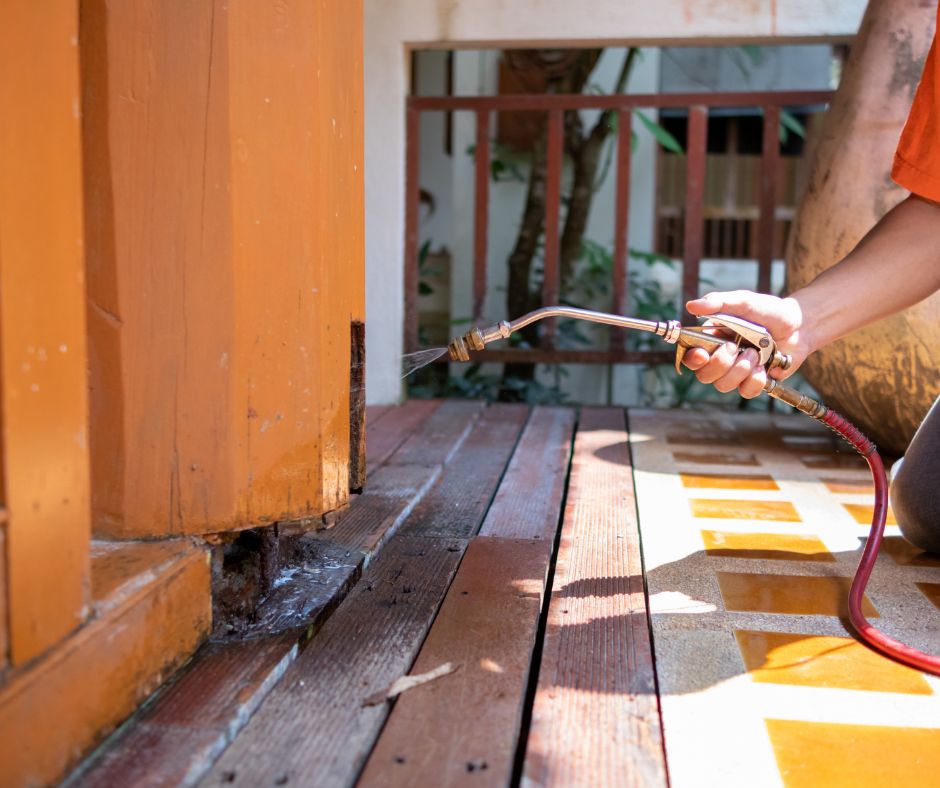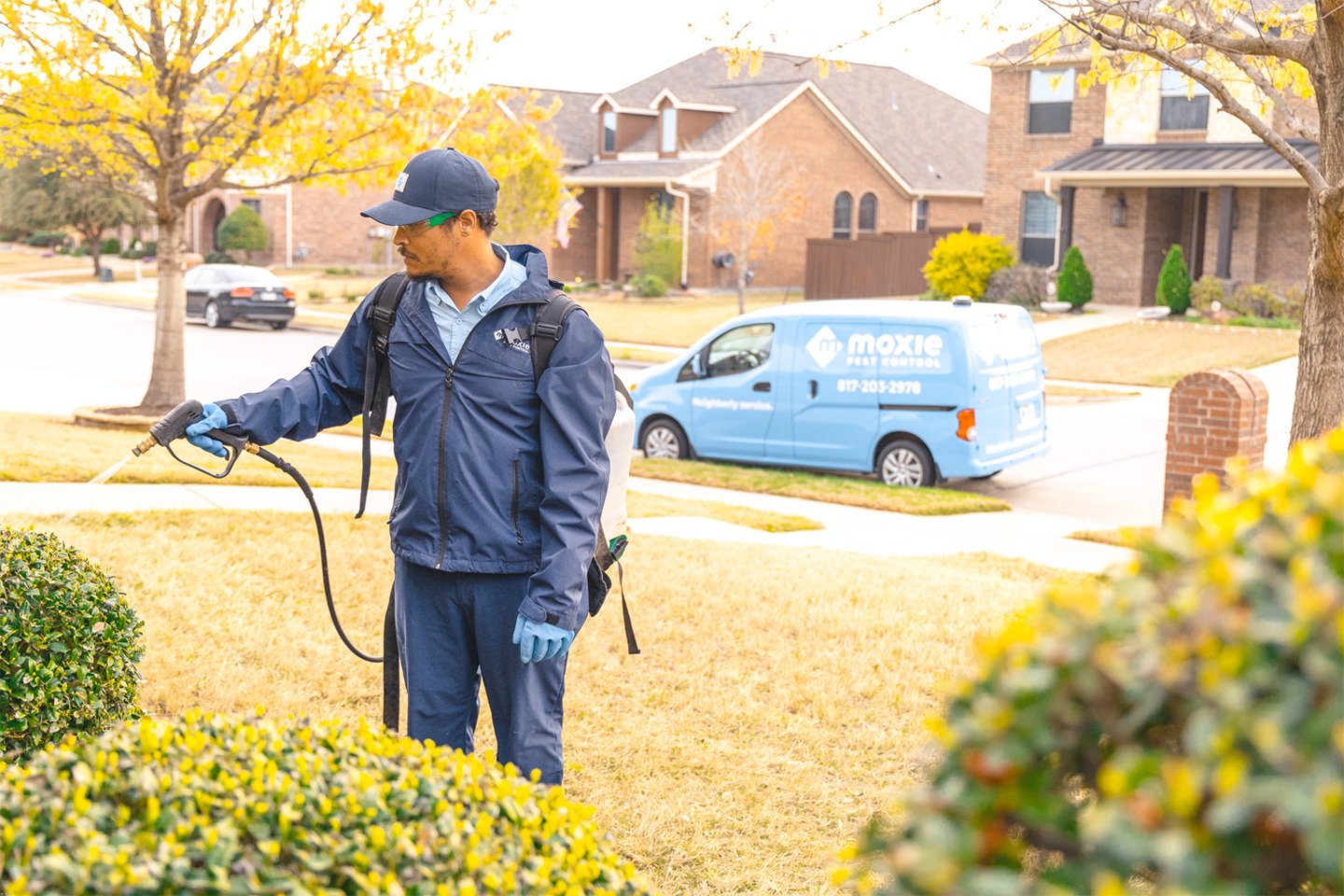Expert Rodent Control Port Charlotte to Prevent Damage to Your Home
Wiki Article
Discover the most recent Advancements in Parasite Control and Exactly How to Execute Efficient Therapy Solutions
In current years, the area of parasite control has seen considerable developments, driven by the requirement for lasting and reliable treatment remedies. Innovative strategies such as Integrated Bug Administration (IPM) combine eco-friendly techniques with innovative technology, boosting both effectiveness and environmental responsibility.Eco-Friendly Parasite Control Options
In recent times, the demand for environmentally friendly pest control alternatives has actually risen as home owners and organizations alike seek sustainable alternatives to conventional chemical treatments. This change is driven by expanding environmental awareness and a wish to lessen the health dangers connected with artificial chemicals.

Environmentally friendly insect control methods incorporate a series of techniques that focus on the use of all-natural substances and practices. Integrated Parasite Monitoring (IPM) is one such technique, integrating biological, cultural, and mechanical techniques to handle bug populations while reducing dependence on chemicals (Wildlife removal services). This alternative technique emphasizes prevention via habitat adjustment and the introduction of natural killers, thus cultivating a balanced ecological community
An additional prominent alternative is using botanical chemicals stemmed from plants, which have a tendency to be much less hazardous to non-target organisms. Products like neem oil and diatomaceous earth have actually acquired grip for their efficiency in managing pests while posturing minimal threats to human health and wellness and the setting.
Additionally, exclusion methods, such as sealing access factors and preserving sanitation, play a crucial role in environment-friendly pest management. By adopting these lasting practices, services and individuals can properly take care of pests while advertising a much healthier world for future generations.
Smart Technology in Insect Administration
Technology is reshaping the landscape of pest administration, with clever technology arising as an essential pressure in enhancing efficiency and effectiveness - Wildlife removal services. The integration of Internet of Things (IoT) devices, fabricated intelligence (AI), and data analytics is transforming just how parasite control experts approach invasions
Smart traps equipped with sensing units can find parasite activity in real-time, sending instant informs to drivers. This enables timely responses, reducing damage and lowering the requirement for considerable treatments. Furthermore, AI formulas assess historic data to anticipate parasite behavior, enabling proactive treatments based on environmental problems and invasion patterns.
Drones and automatic automobiles are likewise playing a substantial role in pest management, providing aerial analyses of huge areas, recognizing hotspots, and even distributing targeted treatments. These modern technologies not only enhance procedures yet also enhance safety and security by restricting human direct exposure to potentially harmful chemicals.
Furthermore, mobile applications empower consumers to check insect task and gain access to professional advice, cultivating a collective approach to pest management. Generally, the fostering of wise modern technology is establishing a new standard in parasite control, emphasizing data-driven choices and sustainable techniques that ultimately benefit both homeowners and experts alike.
Integrated Parasite Administration Approaches
Integrated Insect Monitoring (IPM) employs an all natural strategy to pest control, incorporating numerous approaches to effectively handle pest populations while decreasing threats to human wellness and the setting. IPM rotates around recognizing the pest life process, their natural opponents, and the ecological community in which they grow.Among the basic parts of IPM is monitoring pest populaces through regular evaluations and information collection. This permits the identification of bug thresholds, determining when intervention is necessary. Cultural techniques, such as plant environment, hygiene, and rotation control, are essential in lowering bug occurrence and advertising plant health.
Mechanical controls, consisting of obstacles and traps, are additionally essential in IPM. These techniques can physically eliminate or deter pests without making use of chemicals. When needed, the judicious application of chemical controls is employed, concentrating on targeted treatments that lessen ecological influence.
Education and cooperation among stakeholders, including farmers, parasite control specialists, and the community, are crucial for the effective execution of IPM approaches. By focusing on lasting practices, IPM not just addresses pest concerns however additionally fosters a healthier ecological community.
Biological Control Techniques
Numerous organic control approaches are significantly identified for their performance in managing parasite populations while advertising ecological balance. These methods harness natural killers, parasites, and virus to decrease pest numbers without counting on synthetic chemicals. The introduction of ladybugs can effectively control aphid populaces, while nematodes target soil-dwelling insect larvae.In addition, using microbial chemicals, such as Bacillus thuringiensis (Bt), gives an environmentally friendly alternative for handling caterpillar bugs. These items particularly target pest varieties, minimizing damage to valuable bugs and pollinators. Preservation biological control stresses improving environments for natural adversaries, such as birds and beneficial bugs, thus urging their visibility in farming systems.
Research study remains to reveal cutting-edge strategies within this area, such as the use of scents to disrupt pest breeding patterns or the development of biocontrol agents through genetic modification. Implementing these methods can lead to sustainable pest administration practices that reduce the reliance on chemical interventions, inevitably promoting much healthier communities. As awareness of these strategies grows, they are becoming integral elements of incorporated insect management (IPM) methods, providing a balance in between efficient parasite control and ecological stewardship.
Do It Yourself Parasite Control Solutions
As homeowners look for efficient ways to take on pest concerns, DIY bug control remedies have actually gotten popularity for their access and cost-effectiveness. These approaches equip individuals to resolve problems making use of conveniently available materials and methods, frequently without the need for specialist treatment.
Furthermore, maintaining appropriate hygiene and normal evaluations can stop parasite entry and nesting (Wildlife removal services). Easy methods, such as securing splits, getting rid of food resources, and decluttering, can considerably reduce parasite populaces. Traps, both homemade and readily offered, can additionally supply effective solutions for monitoring and managing particular bugs like bugs or rats

Final Thought
The integration of environment-friendly insect control choices, smart modern technology, and cutting-edge administration strategies offers a comprehensive strategy to efficient pest administration. By embracing Integrated Insect Administration (IPM) and utilizing biological Bed bug exterminator Port Charlotte control methods, together with do it yourself remedies, liable and sustainable insect control can be attained. These developments not only improve the performance of pest management methods however also contribute to a healthier atmosphere. Applying these methods fosters a well balanced ecosystem while effectively dealing with pest populations.Eco-friendly bug control methods encompass a range of approaches that prioritize the usage of natural substances and methods. Integrated Insect Management (IPM) is one such strategy, combining biological, social, and mechanical strategies to take care of parasite populaces while decreasing reliance on chemicals. As understanding of these techniques expands, they are becoming integral parts of integrated bug management (IPM) methods, offering a balance in between effective bug control and environmental stewardship.
The combination of eco-friendly bug control alternatives, wise modern technology, and cutting-edge administration methods offers a detailed strategy to effective insect administration. By welcoming Integrated Pest Management (IPM) and using organic control approaches, alongside DIY options, lasting and responsible bug control can be attained.
Report this wiki page